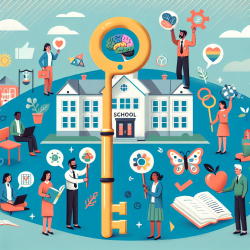Introduction
The COVID-19 pandemic has profoundly impacted global health and education, particularly in the world's least developed countries (LDCs) like Nepal. The research article, "The COVID-19 pandemic, the Sustainable Development Goals on health and education and 'least developed countries' such as Nepal," provides critical insights into these impacts. This blog aims to help practitioners in online therapy services, such as those offered by TinyEYE, to leverage these insights to enhance their practice and outcomes for children.
Understanding the Impact
The research identifies three main factors that have hampered sustainable development in LDCs during the pandemic:
- The privatization of health and education
- Lack of governmental accountability
- Dysfunctional international support mechanisms
These factors have exacerbated existing challenges in LDCs, making it crucial for practitioners to understand the broader context in which they operate.
Implementing Research Insights
For practitioners in online therapy, understanding the research findings can guide data-driven decisions and strategies. Here are some ways to implement these insights:
- Addressing Privatization: Advocate for policies that support public education and health initiatives. Collaborate with local governments and organizations to provide accessible online therapy services.
- Enhancing Accountability: Use data to demonstrate the effectiveness of online therapy. Transparent reporting can encourage accountability and attract support from stakeholders.
- Strengthening International Support: Engage with international organizations to secure resources and support for online therapy programs. Highlight the role of online therapy in achieving Sustainable Development Goals (SDGs) related to health and education.
Encouraging Further Research
Practitioners are encouraged to conduct further research to adapt and refine online therapy methods in response to the challenges identified. By doing so, they can contribute to a body of knowledge that supports sustainable development in education and health.
Conclusion
The insights from the research article provide a valuable framework for practitioners to enhance their online therapy services. By addressing the challenges of privatization, accountability, and international support, practitioners can contribute to sustainable development and improved outcomes for children in LDCs.
To read the original research paper, please follow this link: The COVID-19 pandemic, the Sustainable Development Goals on health and education and “least developed countries” such as Nepal.










